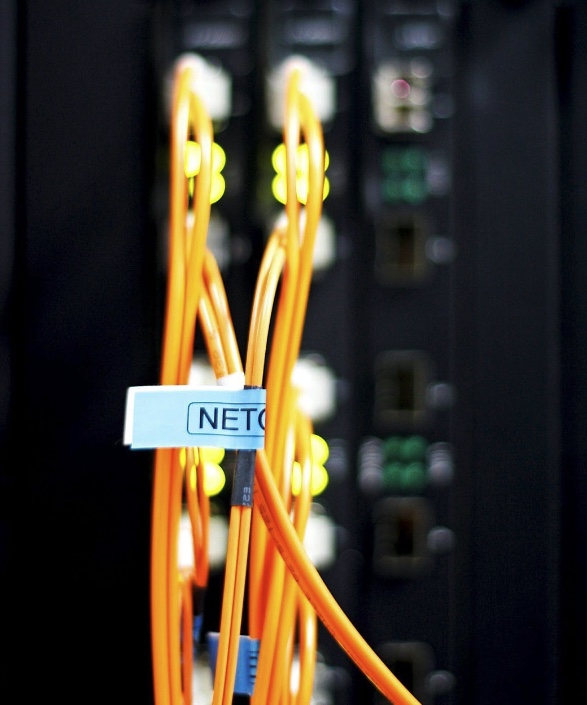Enhancing Privacy with Mobile Proxies

In an era where digital privacy is under constant threat from cyberattacks, data breaches, and intrusive surveillance, maintaining anonymity online has become paramount. The tools that help preserve this privacy are evolving, becoming more sophisticated as the challenges grow more complex.
Proxies stand out as a pivotal solution in this struggle, functioning not just as shields, but also as powerful instruments that enhance security, enable access, and protect user identities across the globe.
This article delves into the realm of mobile residential proxy, with a particular focus on mobile residential proxies, which blend the benefits of mobility with the authenticity of residential IP addresses to offer superior privacy and accessibility.
Understanding Proxies and Their Types
Proxies act as intermediaries between a user’s device and the internet, routing traffic through an alternate IP address to mask the user’s original identity and location. This basic functionality spans several types of proxies, including data center proxies, residential proxies, and mobile proxies, each catering to different use cases.
Data center proxies are known for their speed and efficiency, operating from servers housed in data centers. Residential proxies offer greater legitimacy by routing traffic through IP addresses assigned to private residences. Mobile proxies, however, leverage IP addresses assigned to mobile devices, combining the authenticity of residential proxies with the dynamic nature of mobile networks.
What Are Mobile Residential Proxies?
Mobile residential proxies utilize IP addresses allocated to mobile devices such as smartphones and tablets, which connect to the internet via cellular networks like 3G, 4G, and 5G. These proxies are particularly valued for their authenticity, as they derive from actual devices frequently moving across different network cells. This mobility ensures a continually changing IP address, reflecting genuine user activity and making these proxies exceptionally difficult to detect and block.
Moreover, these proxies embody a higher level of legitimacy and compliance, especially useful in scenarios where trust and non-detection are crucial. Their ability to emulate real human behavior across various geographic locations without raising suspicions makes them ideal for sensitive tasks like social media management, content scraping, and accessing localized information without the risk of being blacklisted or encountering CAPTCHAs.
Benefits of Using Mobile Residential Proxies
The primary benefit of mobile residential proxies is enhanced privacy. By using IPs that rotate dynamically as mobile users switch towers or locations, these proxies make it incredibly difficult for websites to track user behavior based on IP recognition.
Moreover, mobile proxies effectively circumvent geo-restrictions, granting access to localized content across different regions, which is invaluable for businesses conducting market research or executing competitive analysis.
Furthermore, mobile residential proxies are indispensable in ad verification processes, where companies verify that their advertisements appear correctly and without tampering on various websites across different regions. They also play a crucial role in ensuring that digital content adheres to regional regulations and licensing agreements.
Technical Setup of Mobile Residential Proxies
Setting up mobile residential proxies involves accessing a pool of mobile devices connected to the internet through cellular networks. These devices are typically part of a mobile proxy service, where each device’s IP address is available to route traffic. This setup ensures that each proxy session can emulate a real user’s behavior, enhancing the legitimacy of the requests made through these proxies.
While this technology is powerful, it also demands consideration of legal and ethical issues, particularly concerning the use of real people’s IP addresses. Service providers must ensure that all proxy activities are conducted with full compliance and transparency, to uphold privacy standards and avoid misuse.
Challenges and Limitations
While mobile residential proxies offer numerous advantages, they also come with unique challenges. The reliance on mobile networks means that stability and speed can be variable.
Mobile networks, typically slower and less reliable than wired connections, can introduce issues of latency and intermittent connectivity, potentially complicating tasks that require high-speed data transfers or real-time processing.
Moreover, the ethical and legal landscape surrounding the use of mobile residential proxies is intricate. Since these proxies use real devices’ IP addresses, there is a paramount need for transparency and consent from the individuals whose devices are involved.
Proxy service providers must navigate stringent regulations to ensure that their operations do not infringe on privacy laws or ethical standards. Additionally, the use of such proxies must be carefully managed to avoid activities that could be deemed manipulative or deceptive under certain jurisdictions, adding a layer of complexity for businesses aiming to utilize these tools globally.
Case Studies
Numerous businesses have leveraged mobile residential proxies to great effect. For instance, a European digital marketing firm used these proxies to manage hundreds of social media accounts globally, enhancing their engagement strategies without risking account bans.
Another case involved a global e-commerce retailer that utilized mobile proxies to check international pricing discrepancies and optimize their pricing strategies accordingly.
Future of Mobile Proxies
The future of mobile proxies appears promising, with ongoing advancements in mobile technology and network infrastructure continuously expanding their potential applications.
As 5G technology becomes more widespread, the speed and reliability of mobile proxies are expected to improve, making them even more attractive for high-stakes privacy and security applications.
Additionally, as awareness of digital privacy grows, so does the potential for innovative uses of mobile proxies, including in emerging fields like augmented reality and location-based services, where user location and data security are paramount.

Conclusion
Mobile residential proxies represent a powerful tool in the arsenal of digital privacy measures, blending the authenticity of residential IPs with the dynamic capabilities of mobile networks.
As digital landscapes evolve and privacy concerns mount, the role of mobile proxies is set to become more central, driving advancements in both technology and ethical practices. For businesses and individuals alike, choosing the right type of proxy is crucial in navigating the complex web of online security and privacy.
Spotted something? Got a story? Email: [email protected]
Latest News
